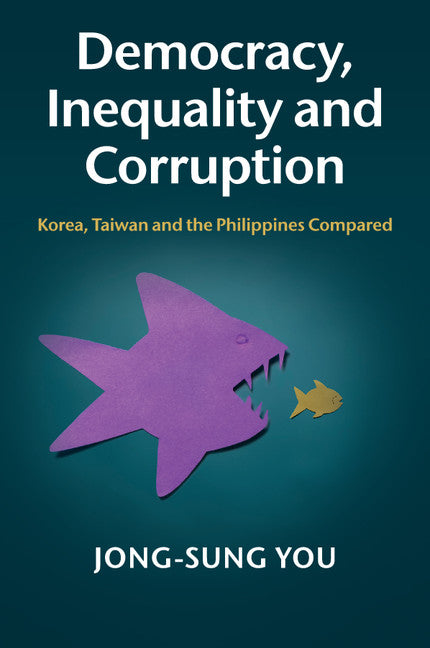Freshly Printed - allow 8 days lead
Couldn't load pickup availability
Democracy, Inequality and Corruption
Korea, Taiwan and the Philippines Compared
In this comparative, historical survey of three East Asian countries, Jong-sung You explores how inequality hinders democratic control of corruption.
Jong-sung You (Author)
9781107435322, Cambridge University Press
Paperback / softback, published 1 September 2016
308 pages, 15 b/w illus. 36 tables
22.9 x 15.2 x 1.7 cm, 0.41 kg
'… this book brilliantly synthesises various theoretical insights into a coherent framework. It represents a major contribution to the study of political corruption in Asia. And given its contextual richness and theoretical innovation, this work should become standard reading for every student interested in political corruption and economic inequality.' Eric Chang, Journal of Contemporary Asia
In this comparative, historical survey of three East Asian democracies, Jong-sung You explores the correlation between inequality and corruption in the countries of South Korea, Taiwan and the Philippines. Drawing on a wealth of rich empirical research, he illustrates the ways in which economic inequality can undermine democratic accountability, thereby increasing the risk of clientelism and capture. Transcending the scope of corruption research beyond economic growth, this book surveys why some countries, like the Philippines, have failed to curb corruption and develop, whilst others such as South Korea and Taiwan have been more successful. Taking into account factors such as the success and failure of land reform, variations in social structure, and industrial policy, Jong-sung You provides a sound example of how comparative analysis can be employed to identify causal direction and mechanisms in political science.
Acknowledgements
1. Introduction: the puzzles, arguments and methodology
2. Democracy, inequality and corruption: theory and hypotheses
3. Corruption in Korea, Taiwan and the Philippines: relative levels, trends and possible explanations
4. The genesis of inequality, land reforms and path dependence
5. Elections, clientelism and political corruption
6. Bureaucracy, patronage and bureaucratic corruption
7. Industrial policy, capture and corporate corruption
8. Cross-national evidence for generalizability
9. Conclusion
Bibliography
Index.
Subject Areas: Political corruption [JPZ], Political activism [JPW], Political control & freedoms [JPV], Public administration [JPP], Political structure & processes [JPH], Political ideologies [JPF], Comparative politics [JPB], Political science & theory [JPA], Welfare & benefit systems [JKSB], Poverty & unemployment [JFFA]


